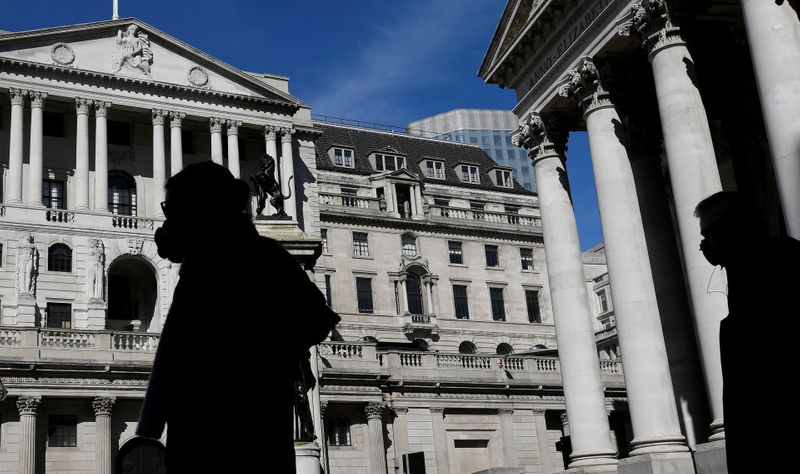
LONDON (Reuters) – Extreme volatility in markets in response to the coronavirus pandemic has reinforced the need to scrap the Libor interest rate benchmark by the end of 2021, the Bank of England said on Thursday.
The London Interbank Offered Rate is used for pricing borrowing costs in contracts worth $400 trillion globally. During rocky markets in March it rose even though the Bank of England cut its interest rate.
Outflows from money market funds were a key driver of frictions in markets underpinning Libor, leading to the rise in Libor rates amid poor liquidity.
“This has reinforced the importance of completing the transition to alternative rates by end-2021,” the BoE said in its interim Financial Stability Report (FSR) on Thursday.
The transition is one of the biggest tasks faced by markets in decades and is underway in futures, swaps and loan contracts.
But some financial firms say they have to prioritise dealing with the pandemic, casting doubt on the prospect of hitting the end of 2021 deadline for scrapping Libor.
The benchmark is being ditched after banks were fined billions of dollars for trying to rig the rate, and for sterling-denominated contracts it is being replaced by the BoE’s overnight Sonia rate.
Libor was originally based on rates for borrowing among banks, but such transactions have slumped.
The proportion of transactions in quotes that banks submit has risen above 10% only once over the past year, with the clear majority of inputs based on “expert judgement”, the FSR said.
During extreme market volatility in March as lockdowns to fight the pandemic were introduced, actual transactions in quotes in the week of 16 March fell to zero.
In contrast, the value of transactions underpinning Sonia rose from an average of around 40 billion pounds a day to over 60 billion pounds in April.
“So while there may be a need for short-term reprioritisation, market participants should remain focused on the continued importance of removing reliance on Libor by the end of 2021,” the FSR said.
Regulators have already pushed back a milestone for basing all new loans on Sonia to the first half of next year to give firms more time.
They also suspended the need for banks in Britain to report data on transition from Libor at the end of the first quarter.
But regulators said on Thursday they have decided to resume “full supervisory engagement” on Libor from June 1, 2020, including data reporting at the end of the second quarter, helping to keep pressure on banks to press ahead with transition.


